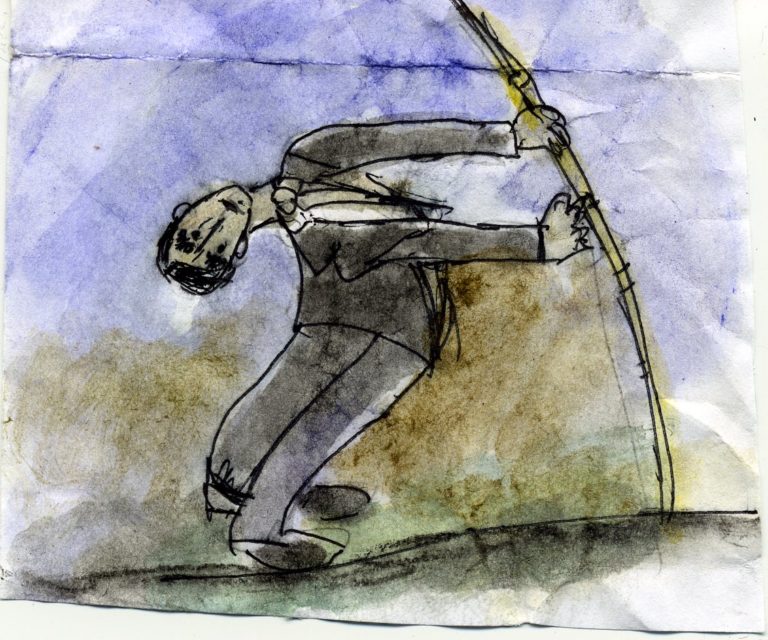
And just like that we find ourselves at the back end of yet another Term. No doubt there were times when it felt like this Term would never end, but like everything it will and it does and it has, or nearly.
This got me thinking about our cultural obsession with being happy. I guess it often feels that being happy is a state of mind that isn’t always conducive to being and happening in our workplaces. It’s not a bad obsession to have, this obsessive quest for all things happy, don’t get me wrong. I mean I don’t know anyone who really enjoys long bouts of unhappiness. But if that’s your working definition of a school term e.g. long bouts of unhappiness, then Houston we have a problem.
Happiness comes and goes. The good news is that it will come again as soon as it has gone. It will arrive in places both expected and unexpected, and I’m picking that it’s the unexpected places that generate happiness that are the best.
Our culture bombards us all; leaders, teachers, admin staff, and students with quick fix ways of getting that happiness top up. Buy this, buy that, go here, go there, do this, do that. There’s so much quick fix stuff out there that it’s a: surprising that we’re never unhappy, but yet we find ourselves unhappy a lot and b: unsurprising that it’s an addiction that we can’t seem to let go of.
Which got me thinking about what are the things we have in our toolkit that protect or prolong our happiness?
About a year ago, when I was actually a Principal, a speaker attended a local Principal meeting talking enthusiastically about keeping upbeat and building on (and holding onto) this thing called Resilience. I’m no longer a Principal, but I sense talking to people still at the chalk face, that little has changed and that with “just a little bit of resilience” there’s a sense that we’ll get ourselves through.
To an extent that’s true. We (or you more accurately) have gotten yourself through. I can’t help but wonder at what cost? So what is it, this magical thing called resilience?
My ears really pricked up recently when I was listening to Esther Perel on You Tube. I’ve talked about Esther before, she’s a psychotherapist who excels in relationships.
She was speaking about a thing called the Resilience Trifecta. This involves three key elements that surround our understanding about how resilience best works.
Bending
Perspective
Attitude
Bending is the process of being flexible. Lots of yoga helps you become physically flexible, and so I wonder if Bending is the psychological equivalent when it comes to resilience. The French have a lovely term for this called Je plie, et ne romps pas which essentially translates to “I bend but do not break”. In English we might say; “Live to fight another day”, or the delightful Te Reo “Kei te tu tonu au” – I’m still standing.
It’s not about giving in, or having people walk all over you, or not getting what you want, or any of those things that people bandy around when they think that you should stick to your guns and not move or compromise in any way.
Some people call it pivoting, but I like the idea of bending, a bit like a tree in the wind.
Perspective comes from looking at the situation with a different lens or from an alternative angle. Perspective gives you the opportunity to take a 360 degree look at whatever you’re facing. This might also help you bend, and be nimble.
And finally, Attitude. Attitude is your mindset. It’s one of your key coping mechanisms. You have a choice as to which attitude you bring along to the party. There’s not a lot of value in adopting an attitude that appears defensive or cold. Adopt a more curious and positive mindset to the situation in front of you and it’ll put you in better stead.
Of course there are other ways to protect your happiness.
Over the years I’ve heard people say; I just don’t give a sh#t”, or “I don’t give anyone or any situation the luxury of deciding for me what energies I may or may not use”, or “I’m made of harder stuff, and I don’t get stressed”.
It’s important to repeat that happiness is a thing that comes and goes. And because of this it’s also important to understand that happiness is a present – literally, in that it happens in the present. If you want to gauge the success of your life you’re better to do as many Positive Psychologists suggest; don’t base it on the whims of this thing called happiness, it’s way too fickle. Instead look for meaningfulness in your life. That’s a thing that transcends time; it helps you evaluate your past; it helps you enjoy your present; and gives you hope for a future.
Steve
Sandi Abel says:
Steve – Where do you come up with these pearls of wisdom – really appreciate this at the end of a hectic term – take care – Sandi Abel